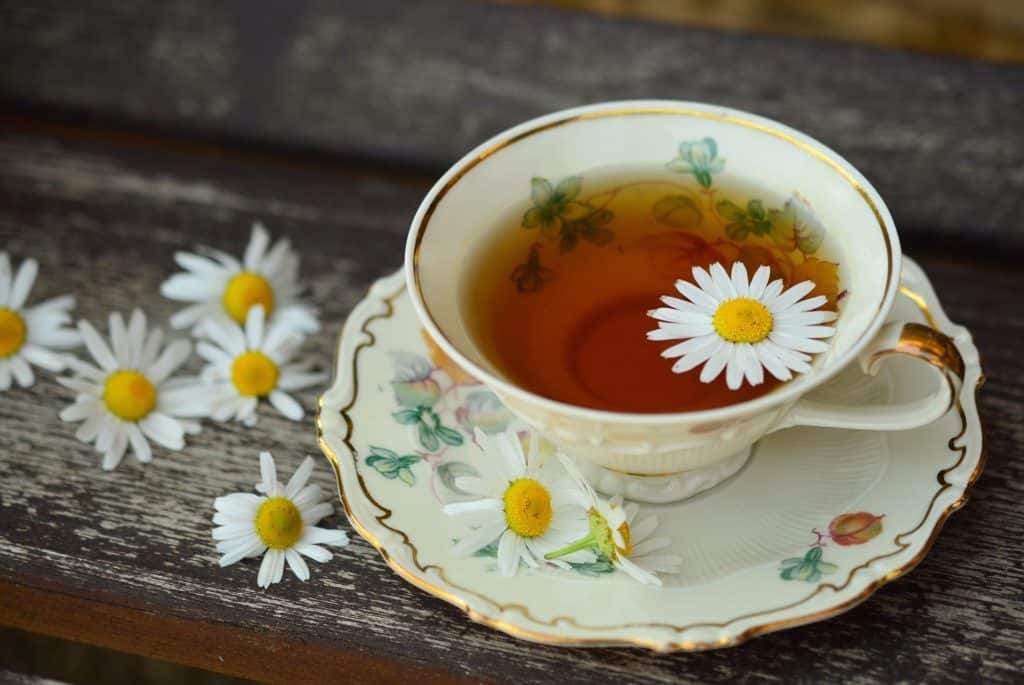Attending college is a monumental achievement. Going to college is a chance for a young adult to develop skills and gain an education that can launch a career. College is also a chance to spread the proverbial wings and learn to socialize as an adult. Between attending classes (those 8am courses almost seem cruel!), completing course work (hello, 10-page papers!), and socializing, the college experience can be exhausting. College students and sleep go hand in hand
Any college student who tries to cram everything into their college experience is going to need help getting the rest they need so they can have the energy to power through the semester. The key to a healthy social life and good schoolwork comes down to eating healthy food, exercising, and getting plenty of sleep each night. Yet, actually falling to sleep can be tough in a loud, crowded dorm. Some college students get stuck with loud roommates who crunch on snacks all night long, while others simply cannot sleep well in a communal setting. Insomnia and poor sleep quality can negatively affect academic success, but it can also affect mood, weight gain, and even personal relationships. The importance of sleep for college students is no trivial matter. To say sleep is important is an understatement!
The good news is that college students aren’t stuck living in an eternally exhausted state. Now, there are endless sleep aids to help college students get the rest they deserve. From gear to help block out noise to apps that help relax your mind before bed to supplements that help induce sleep, any college student entering the 2020 school year has plenty of options for getting to sleep with ease.
How to Find the Best Sleep Aids
Ready to try a few sleep aids? Don’t sweat it; we’ve done the work for you! These are the top 10 sleep aids for college students. We’re not affiliated with any of these products or their companies, and we also don’t get paid for endorsing any of these sleep aids. But if you’re suddenly sleeping with ease and living your best life? Okay, we’ll take some of the responsibility.
Continue reading to learn more about the sleep aids available to you.
1. Magnesium L-Threonate Supplement
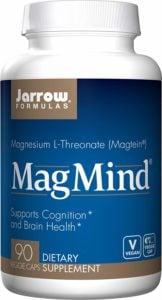
Can’t sleep? There are many causes of insomnia, including caffeine consumption and high stress levels. If java isn’t the culprit, you might blame stress for affecting your sleep. The experts at Harvard Health found that magnesium deficiency is one of the leading contributors to insomnia. Magnesium supplements can help you get the rest you need in a few ways. Magnesium:
- Decreases the stress hormone (aka cortisol): This is particularly useful if stress (who isn’t stressed in college?) keeps you up at night
- Relaxes your muscles so you’re more relaxed
Jarrow MagMind can provide all of the magnesium L-Threonate a college student needs. As a bonus, Jarrow MagMind supports both short- and long-term memory, which can be useful when cramming for exams.
Capsules are affordable (even by college standards) at about $20 for 90 capsules. To ensure a good night of sleep, take one capsule in the morning, and take two capsules before hopping into bed at night.
2. Valerian Root
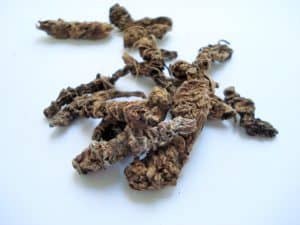
Valerian root may sound like some herb straight out of Game of Thrones, but valerian root is very real and very helpful. Extracts of the valerian roots – Valeriana officinalis – have been used to help induce sleep since the second century. Valerian has a long history, but does it work? Research published in the American Journal of Medicine reveals that valerian root doesn’t just help induce sleep, but it also helps improve the quality of sleep too. Win-win!
The good news is that the modern-day college student won’t have to concoct their own tinctures or make an extractions. Valerian root can be taken via veggie caps. TrueCalm by NowFoods takes the efficiency of valerian root to the next level by combining it with GABA and glycine and magnesium, three compounds that work hard to promote a relaxed state of mind.
The best part? A 90-capsule supply costs only about $10, making this an affordable way to catch up on those Zzz’s.
3. Magnolia Bark
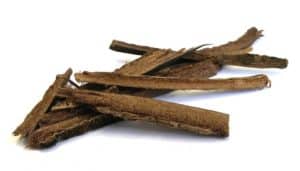
If anxiety is affecting your ability to snooze, magnolia bark may be beneficial. Magnolia bark is used in Traditional Chinese Medicine, and it is often called houpu or hou po. As the name suggests, magnolia bark extract is extracted from the bark of the magnolia tree — a tree that grows natively in China. Magnolia bark helps promote restful sleep in three ways.
Magnolia bark:
- Reduces anxiety levels
- Promotes deeper and more restful sleep
- Decreases stress hormone levels in your body
It may sound too good to be true, but current research explains how magnolia bark gets the job done. Magnolia bark is an antioxidant which means it helps reduce inflammation and oxidative stress. It is also a GABA booster. Remember that GABA is a neurotransmitter known for creating a calming effect. When magnolia bark boosts GABA activity, anxiety is reduced, which helps promote better sleep at night.
If you’re ready for a literal chill pill, try Dr. Seeds’ Chill Pill (their main ingredient is derived from Magnolia Bark). A one-month supply costs $69.95, but one capsule starts to chill you out in under 20 minutes.
4. DIY Lavender Eye Pillow ala Martha Stewart
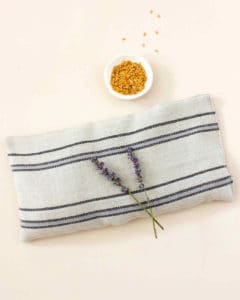
Aromatherapy is one of the oldest methods for inducing calm, restful sleep. Nothing says relaxation quite like the relaxing scent of lavender. These days, essential oils and essential oil diffusers are one of the most common methods for practicing aromatherapy, but diffusing essential oils isn’t always allowed in public spaces. Plus, not all roommates enjoy smelling fields of lavender. Just because you shouldn’t diffuse essential oils in a public space doesn’t mean you can’t reap the benefits of sleep-inducing lavender!
Feeling crafty? You can make your own DIY lavender eye pillow a la the Craft Queen herself, Martha Stewart. Follow Martha Stewart’s easy step-by-step tutorial here. All you need is some old fabric (even a worn out T-shirt will work in a pinch), a sewing kit (a simple needle and thread will work – no need to use a sewing machine), dried lavender, and lavender essential oil. Dried lavender can be found for $1.33 per ounce, and lavender essential oil runs about $7.39 for a 10mL bottle.
Bonus: these lavender-scented eye masks will promote feelings of calm, induce sleep, and block out light! This is a big bonus if you have a roommate who likes to keep the lights on all night.
5. Chamomile Tea
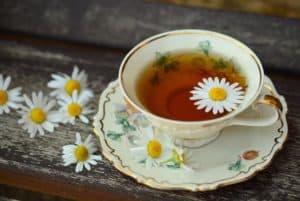
A hot cup of java before bed? Coffee and other caffeinated beverages – including bubble tea, black tea, and chai tea – can sabotage any plans to get a decent night of sleep. However, not all teas should be blacklisted. Chamomile tea is an herbal tea, and it doesn’t contain any caffeine. It does, however, contain an antioxidant that promotes better sleep. Apigenin, the antioxidant found in chamomile tea, actually binds to specific receptors in your brain and as a result, tea drinkers experience feelings of sleepiness, reduced insomnia, and better sleep.
Ready to try a cuppa? Yogi Comforting Chamomile is organic, non-GMO, and loaded with 1500mg of chamomile flower. This 96-pack of tea bags costs $23.88. Not ready to commit to teh 96-pack? No problem. Target sells a 16-pack for $3.99 so you can stock up on your next Target Run.
As a bonus, chamomile tea also helps settle upset stomachs, so this is a good tea to have an hand.
Tip: You don’t need a kitchen to have hot tea in your dorm room! You can microwave water in a microwave-safe mug until it reaches the boiling point. Then, carefully, let your tea bag steep for about 7 minutes. Herbal tea always takes longer to sleep than regular black tea. If you prefer stronger tea, you can double up on the tea bags, which can serve up a combined 3000mg of chamomile flower. Delish!
6. Meditation

If you’ve ever laid awake at night, trying to turn off your brain, you’re not alone. The endless chatter in the mind can make falling asleep difficult – if not impossible. Meditation has been used for millennia as a way to de-stress, calm down, and find peace.
Meditating before bed can help ease anxieties, quiet the mind, and prepare the body for sleep. If you’re new to meditating, there are plenty of options for learning to meditate. Start by reading this quick guide, How to Meditate. You can also find meditation centers in your town.
Look for meditation centers in your local area or find a Youtube video to start out!
Tip: Check out YouTube for a guided meditation. There are a variety of styles, including some with and without music. Take a peek and find one that works for you. Then, when you’re ready to unwind, turn on your YouTube video, and find your center, and drift off to sleep.
Here are some guided meditations you can try:
- Guided Sleep Meditation Positive Mind Boost and Energy Healing Before Sleep With Affirmations
- Guided Meditation Before Sleep: Let Go of the Day
- 8 Hours of Rain Sounds to Listen as You Meditate on Your Own
- Guided Sleep Meditation to Let Go of Negative Attachments & Let Go of Trivial Thoughts & Worries
- Sleep Talk Down Guided Meditation: Fall Asleep Faster, Guided Sleep Meditation Visualization
- Instant Calm: Beautiful Relaxing Sleep Music
In addition to using guided meditations on YouTube, you can also find meditation apps so you can meditate anywhere, anytime from the convenience of your phone. Some of the best meditation apps include Headspace, The Mindfulness App, Calm, Sattva, buddhify, and Stop, Breathe & Think.
The takeaway is that there is no shortage of ways to learn about meditation and practice it.
7. Homedics Deep Sleep® Mini
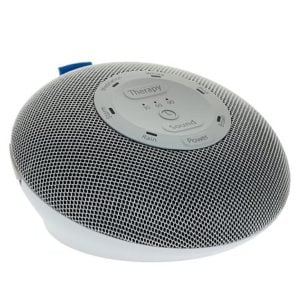
Sometimes the inability to fall asleep has nothing to do with high stress levels and everything to do with unfamiliar sounds and loud noises. That’s where a white noise machine comes in! White noise technically adds more sound to the environment, but by doing so, the white sounds blocks out other sounds – like someone opening a door down the hall or someone shuffling down the corridor.
White noise works by filling in the silence with what is called “unstructured noise.” White noise is a specific frequency of sound. The Deep Sleep Mini by Homedics allows users to select which frequency to use, including white noise, pink noise (which is softer), and brown noise. The Deep Sleep Mini also features storm noises and guided meditation settings.
Grab a Deep Sleep Mini during your next trip to Walmart for just $39.88.
8. Liquid Melatonin
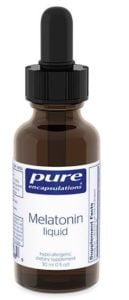
Hormones for sleep? Yep! Melatonin is a hormone. This hormone is manufactured by the pineal gland, and your body uses melatonin to regulate the sleep/wake cycle. Superficially, melatonin regulates the circadian rhythm. Sometimes, the body needs a little boost with melatonin supplements. Research shows that melatonin supplementation can help induce sleep and promote better quality sleep too.
Pure Encapsulations Liquid Melatonin makes melatonin delivery easy: 1ml dropper contains 2.5mg of melatonin – all flavored with apple and black currant juice so each dropper tastes great! Take one full dropper about 30 minutes prior to going to bed.
A 30mL bottle costs $27.80, but your local Walgreens may have a cheaper alternative.
Tip: Melatonin supplementation should be discussed with a healthcare provider prior to starting a liquid melatonin regimen.
9. Sleep Pillows
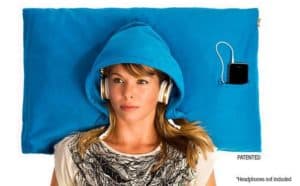
A good night of sleep might be one pillow away. Sure, the wrong pillow can cause all sorts of problems like stiff necks, but choosing the right pillow can help you get the sleep you need when and where you need it.
Top choices for sleep pillows include the Hoodie Pillow and the Ostrichpillow.
The Hoodie Pillow
Ideal for those who enjoy falling asleep listening to music, the Hoodie Pillow is the solution. The Hoodie Pillow features a hood (with drawstrings!) and a pocket to hold a phone or iPod. The hood conveniently keeps the headphones in place, but it serves another purpose: pull down the hood to cover your eyes and block out the light. This is great for students who take naps during the daylight hours.
The Ostrichpillow
The Ostrichpillow comes in many forms, but the goal is the same: to keep sleepers comfortable no matter where they sleep. Some designs can help block out light, while other designs are ideal for catching naps throughout the day – even on a desk!
Prices vary depending on which brand and style selected. The Original Ostrichpillow runs for $99, and the Hoodie Pillow costs $29.95.x
10. Fab CBD Oil

CBD oil seems to be everywhere these days, and it’s not too much of a surprise to find it on a college campus. CBD oil is touted to help reduce anxiety, but it can also help promote quality sleep too.
According to research published in PLoS One, CBD oil can promote sleep by helping reduce feelings of anxiety. Another study reveals that CBD oil can serve as a treatment for insomnia. Even better, the researchers also conducted that CBD oil has a positive effect on REM sleep behavior disorder. It also helps manage:
- Excessive daytime sleepiness
- Nightmares associated with post-traumatic stress disorder (PTSD)
- Sleep quality in individuals with chronic pain
Fab CBD is available in five flavors: citrus, mint, natural, berry, and vanilla. It is also available in five strengths: 300mg, 600mg, and 1200mg. The price ranges from $39-$99 depending on the strength requested. When taking CBD oil for general health, a much lower dosage is needed than when taking CBD oil for sleep troubles. Depending on the severity of your insomnia, expect to take anywhere from 40 – 160mg of CBD oil. Take your oil a few hours before bed.
Tip: Before purchasing CBD oil, check with your local state and campus laws.
Bonus Tips: Maximize Your Sleep Aids by Improving Your Sleep Hygiene
Once you’ve selected your sleep aid (or combination of sleep aids), it’s time to practice good sleep hygiene. Sleep hygiene is a series of practices that help promote sleep latency (how fast it takes to fall asleep) and quality sleep (how well-rested you feel in the morning). Basically, sleep hygiene practices are healthy sleeping habits for college students. These good sleeping habits for college students can include:
- Aiming for 7 – 9 hours of sleep each night
- Avoiding blue light (the type of light that tablets or phones emit) for 2 hours before bed. If you do use a phone before bed, switch to night mode to eliminate the blue light.
- Avoiding caffeine consumption close to bed time
- Avoiding exercising right before bed
- Drink alcohol responsibly and in moderation (too much alcohol can diminish sleep quality)
- Keep the room thermostat set between 60F and 67F
- Add a white noise machine to the room
- Avoid sleeping with a nightlight (or use an eye mask to block out light)
- Limit daytime naps to power naps AKA 20 minutes
Bottom line: improve your sleep hygiene and consider using some of the mentioned sleep aids, and you should feel like yourself in no time!
Related:
